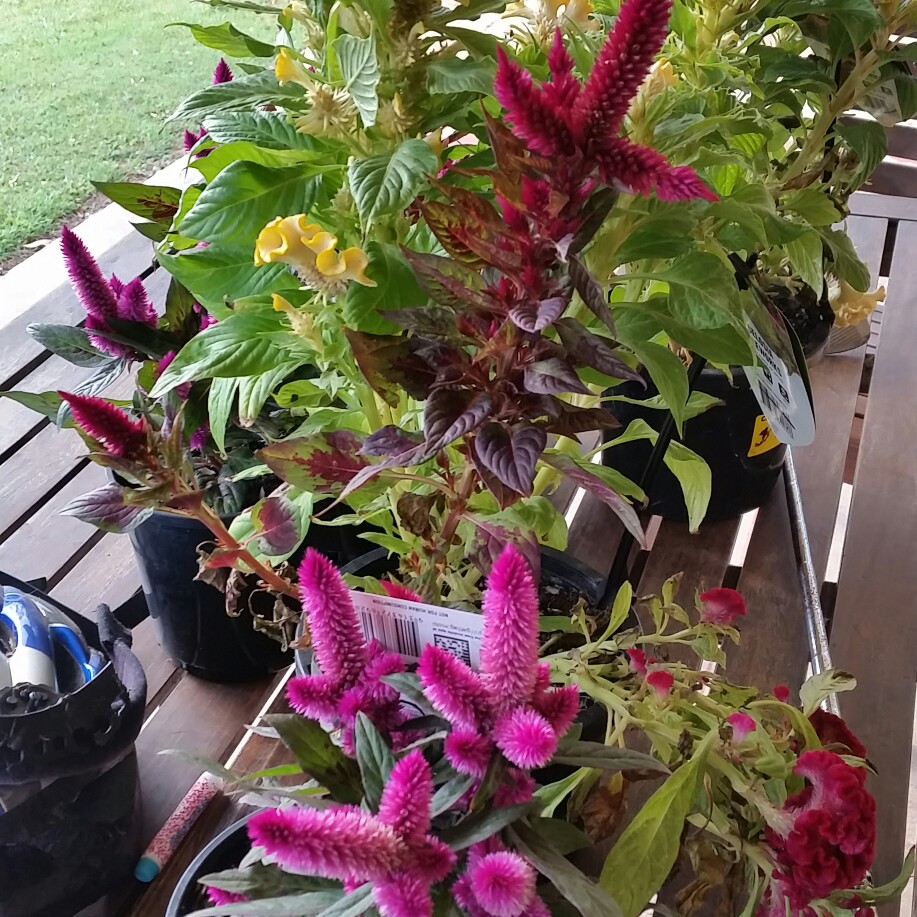
Celosia caracus
Cockscomb
Brightly coloured flowers resembling feather plumes appear from mid-summer to early autumn. Only annual varieties of C. argentea are cultivated in Britain as exotic looking summer bedding plants which require a warm, sheltered position. Other species need to be grown as pot plants and sited in a warm location. In the United Kingdom, celosia caracas is more commonly called 'Prince of Wale's feathers'.
Contributed by @Aprudeli
-
Full sun
-
Occasional watering
-
Not Frost hardy
-
Moist and rich
Common name
Cockscomb
Latin name
Celosia caracus
type
Annual
family
Amaranthaceae
ph
5.0 - 7.0 Acid - Neutral
Plant & bloom calendar
-
Best time to plant
full grown dimensions
 0.35 M
0.45 M
0.35 M
0.45 M
Celosia caracus
Brightly coloured flowers resembling feather plumes appear from mid-summer to early autumn. Only annual varieties of C. argentea are cultivated in Britain as exotic looking summer bedding plants which require a warm, sheltered position. Other species need to be grown as pot plants and sited in a warm location. In the United Kingdom, celosia caracas is more commonly called 'Prince of Wale's feathers'.
Planting Outdoors Spring
From Late Spring TO Late Spring
Plant outdoors when all risk of frost has passed, in fertile, moisture retentive soil in full sun and in a sheltered position. Grow C. cristata and var. plumosa in pots in the greenhouse. No artificial heating is needed after mid-spring. Grow in good light but shaded from direct midday sun.
Propagation by seed
From Early Spring TO Early Spring
Sow seed in greenhouse in early spring, providing a minimum temperature of 15C.



























